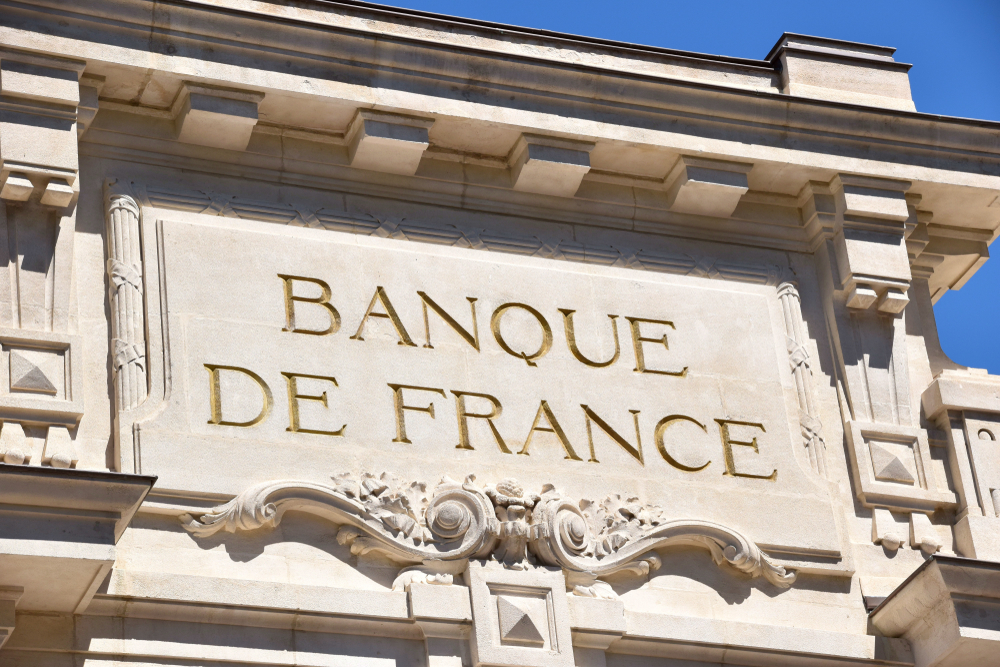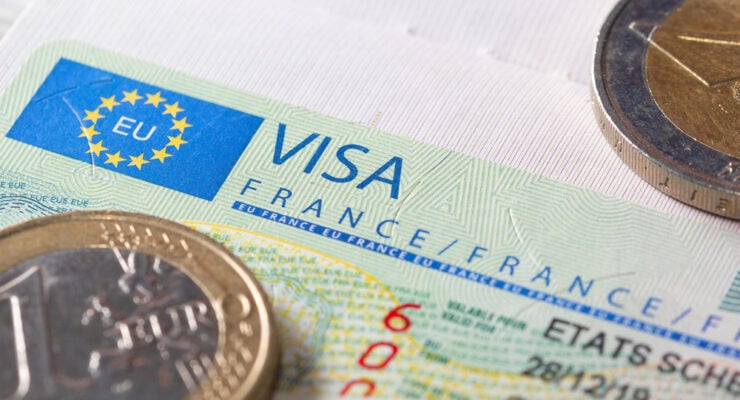If you are moving to France on a Working Holiday Visa (or other visa), you will likely want to open up a French bank account once you arrive. Thankfully, it is possible for foreigners to do so and shouldn’t be too complicated if you know what steps to anticipate. Continue reading to know what those are.
Option 1: neo-banks
Given that opening a traditional bank account requires proof of address, you probably won’t be able to do so right away when you arrive in France. And since your future employer is sure to ask you for your bank details in order to pay you, the easiest solution is to first find a neo-bank.
A neo-bank is a bank that is entirely online. It allows you to transfer money between different currencies. It is easier and faster to open an account with a neo-bank than a traditional bank. For example, you won’t be required to provide proof of earnings or of residence.
For the initial period of your working holiday, neo-banks can be a great option. You can transfer money from your home currency to euros. Plus, you can even open a neo-bank from your home country.
Our recommendation: Wise
Wise is a neo-bank that allows you to open accounts in more than 40 currencies.
With a Wise account, you can make and receive transfers, get paid via direct deposit, and easily exchange one currency for another. You can even request a physical bank card that you can use to make purchases in France or abroad.
Special deal:
Wise has partnered pvtistes.net to offer readers a free international transfer.
Learn more.
Option 2: Traditional French banks
To open an account at a traditional French bank, you will need
- a French phone number.
- a French address. You can simply provide your lease agreement, electricity bill, home insurance, or statement (attestation d’hébergement) if a friend or relative is housing you.
Which bank to choose?
Once you have a French phone number and address, you can choose a local bank branch and make an appointment. You can do so by calling or going in person. The choice of the bank doesn’t matter too much, as basic checking accounts (comptes courants) usually all have low or zero fees.
I was able to open an account at Crédit Agricole. I have their Globe Trotter checking account for 2 euros a month. Another working holiday maker also confirmed that he was able to do so at LCL, a subsidiary of Crédit Agricole.
Ask them what documents you need to bring. The standard pieces are: passport, visa, and proof of address. You’ll also provide your French phone number.
In summary, here are the sequential steps that I took:
- Opened a Wise account and funded my euro balance using Canadian dollars
- Obtained a friend’s address in France
- Got an e-SIM from Free Mobile (used my friend’s French address and paid with my Wise account)
- Found an apartment in France and signed a lease
- Opened a local bank account at Crédit Agricole (required my French number and new address)
FAQ
My bank is telling me WHV holders can’t open a bank account!
This is not true. WHV holders are authorised to open a French bank account, but because the WHV is a relatively rare visa category, some bank associates may not be familiar with it. Policies may also vary from bank to bank. If you are still having trouble getting serviced after explaining your situation, try a different bank.
Do I need to have a job?
In general no, but it depends on the bank. They might ask you to fund your new account with some euros so that the balance is above zero. You can do so either by transferring some euros from your Wise account, or by depositing some euros in cash.
My bank is asking for a bunch of other documents.
Some banks might require additional documents like bank statements from your home country, recent pay stubs, tax returns etc. Not all banks ask for these documents, so if you’re unable to provide the additional documents that your bank is asking for, try a different bank.
Should I get a credit card or debit card?
Credit cards are exceedingly rare in France. Instead, almost everyone uses debit cards. Sometimes you might hear people refer to cartes de crédit, but in 99% of cases the speaker still means debit card, they might just not realize there’s a difference.
What do RIB and IBAN mean?
RIB is short for relevé d’identité bancaire. It is basically an ID for your bank account. It’s a short document that contains your full name, plus account and routing numbers. Some entities or individuals may ask you for your RIB if they want to credit or debit your account directly. For example, your landlord would provide his/her RIB to you so that you can send your rent payments.
IBAN is short for International Bank Account Number. It is one of the fields that appears on your RIB. This is the crucial number that other people need in order to initiate transfers. Authorised businesses and government agencies also have the ability to debit your account using your IBAN.
What about BoursoBank or other French online-only banks?
BoursoBank is popular among young people in France because it is simple to use and has no fees. However, BoursoBank requires applicants to already have a traditional French bank account and a titre de séjour (residence card; visa stickers and APS not accepted). That means working holiday makers are ineligible for it.
If I make a Wise account in euros, do I still need a French bank account?
Wise is a great option that will allow you to easily:
- Hold euros
- Obtain a debit card
- Exchange between euros and other currencies
- Receive salary via direct deposit
- Send transfers to and receive transfers from other people (e.g., to landlord)
- Make ATM withdrawals and deposits
- Pay for recurring charges such as phone bills and gym membership
However, it is still recommended to eventually make an account at a traditional French bank as well, namely for two reasons:
- Some services require payment from a French account. For certain payments related to the French state or public sector, such as utility companies, government taxes, state services etc., you might be required to provide French account information. Because Wise’s euro operations are headquartered in Belgium, it is still technically a foreign account. Accordingly, the IBAN of Wise euro accounts start with BE rather than FR.
- Writing and depositing cheques. Having a traditional account gives you the possibility of issuing and depositing cheques. Though you might not write or receive cheques very often, it can still be useful to have the option. For example, my gym required me to write a cheque as a security deposit. And you also never know when you might receive a cheque for refunds or other purposes.












 Français
Français English
English




0 comments
{{like.username}}
Loading...
Load more